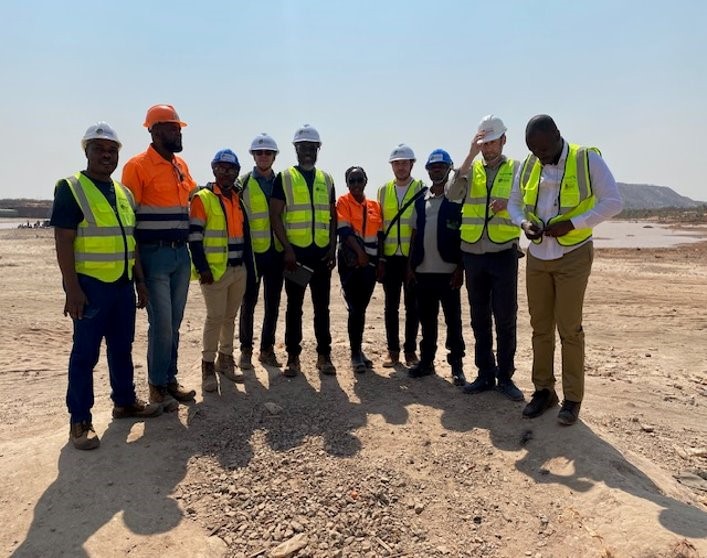In June 2023, the Global Trace Protocol (GTP) Project team conducted a field visit in the Democratic Republic of the Congo (DRC) to support the goal of helping to reduce child and forced labour in global supply chains through traceability
In June 2023, the Global Trace Protocol (GTP) Project team, including Project Director Jeff Wheeler and Supply Chains Technical Lead, Jon Ellermann, participated in Mining Week and conducted a field visit in the Democratic Republic of the Congo (DRC). The trip supported the Project goal of helping to reduce child and forced labour in global supply chains through traceability, which includes testing a trace tool for artisanal and small-scale mining (ASM) of cobalt in the DRC.
During DRC Mining Week held in Lubumbashi from June 14-16, the Project team, and its partners RCS Global and the Responsible Mining Initiative (RMI), collaborated with the US Department of Labor (USDOL) and the US Agency for International Development (USAID) in dialogue with the DRC government and key stakeholders, addressing the challenges of tracing ASM cobalt ore from the mines, to crude cobalt smelters and beyond. The project’s open-source mandate and vision for sustainability will help ensure that the traceability tool can be adapted, expanded and applied by key stakeholders, including the DRC government. The Project team seeks to test the pilot tool before the DRC elections, scheduled for December 2023.
The traceability tool’s risk management function will help identify the problem of child and forced labour in ASM cobalt mining’s supply chain, mindful of these considerations:
- About 70% of the world’s cobalt is mined in the Democratic Republic of the Congo (DRC)
- Around 50% of cobalt production is destined for batteries
- Each electric vehicle (EV) battery can contain more than 30 pounds of cobalt
- 73% of the DRC population lives on $1.90 or less a day
- DRC’s cobalt ore is on the U.S. Department of Labor’s list of goods made by child or forced labour
Calls to prevent child and forced labour in the production of vehicles and electronic devices’ batteries comes from many sources: governments around the world (including but not limited to the US government and those in the European Union); key global brands, including auto manufacturers; international organisations, including the Organization for Economic Cooperation and Development (OECD) and the International Labor Organization (ILO); and numerous labour and human rights advocates as well as consumers.

The team also visited Kamilombe, a massive cobalt and copper mine site near Kolwezi covering about 35-40 square kilometres. The number of artisanal diggers and miners ranges from about 6,000 to 20,000, depending on season and cobalt price and demand. RCS Global, which is actively monitoring site labour conditions, guided the visit. The team met with the Cooperative’s (CMDS) elected leadership and the Comité de Creuseurs, which represents the miners/diggers. It also gathered information about the role of the Comité des Femmes Laveuses, which represents women cobalt washers. The team toured the Cooperative’s newly completed hospital and the nearby Musompo Trading Center, an innovative effort aimed at streamlining cobalt sourcing, providing storage, facilitating the sale of cobalt, and ensuring that miners/diggers are properly paid based on cobalt quality. The Center recently launched its laboratory but has not yet started operations.
Stakeholders are collaborating to support the formalisation of small-scale mining operations, which includes meeting legal requirements for the exportation of ASM mined cobalt. This formalisation should ease the Project tool’s approval process.
The Project is optimistic that the traceability tool will yield results that will improve due diligence in DRC cobalt, support the goals of the DRC government as well as other key stakeholders and, most importantly, improve the lives of people in the mining communities. The process for gaining approval to test the pilot, however, has been long and complex. Discussions are underway that may allow the pilot to start soon.
